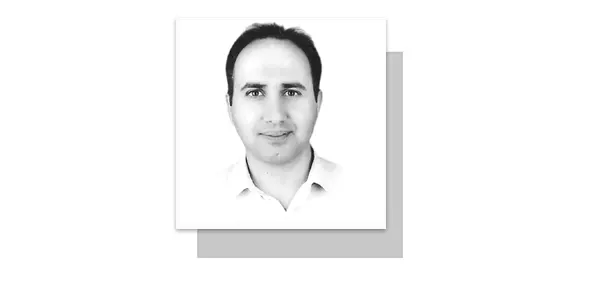EDUCATION is often hailed as the great equalizer, a beacon of hope that illuminates the path toward justice, equality and progress. It is through education that individuals transcend the constraints of circumstance, unlocking the potential to reimagine their future. Yet, in Pakistan, where society is a mosaic of diverse cultures with disparity between rich and poor, the promise of education remains unequally distributed. The urban-rural divide in access to quality education is not merely a gap in resources, it is a profound moral and philosophical challenge that strikes at the heart of what it means to build an equitable society. This divide symbolizes the tension between opportunity and neglect, progress and stagnation, leaving millions of rural children unable to grasp the transformative power of knowledge. In addressing this disproportion, we confront not only a societal failure but also the deeper ethical question of how to ensure that the light of education shines equally upon all.
Pakistan’s education system reveals a duality that mirrors the broader inequities within society, an urban privilege juxtaposed with rural deprivation. Cities like Karachi, Lahore, and Islamabad stand as symbols of opportunity, where the promise of education flourishes in well-resourced schools and competitive environments. Meanwhile, in rural areas, where nearly two-thirds of the population resides, the absence of adequate infrastructure, trained educators, and essential resources casts a shadow over the transformative power of learning. This dichotomy is not merely a logistical imbalance, it reflects a deeper moral dilemma. It challenges the principled foundation of a society that claims to value equality yet tolerates a system where geography dictates the destiny of its children. The persistence of this divide perpetuates cycles of poverty and social stagnation, raising profound questions about justice, equity, and the collective responsibility to bridge this chasm. Data from the Pakistan Social and Living Standards Measurement (PSLM) Survey reveals the stark inequalities ingrained in Pakistan’s education system. Urban areas, with a literacy rate of 72%, symbolize relative privilege and opportunity, while rural regions, at just 43%, highlight a persistent cycle of neglect and deprivation. The gender disparity deepens this divide, female literacy in rural Pakistan drops to as low as 38% in some regions, a figure that underscores the compounded marginalization of women. The contrast between provinces like Sindh, where urban literacy reaches 72% but rural literacy struggles at 41%, and Balochistan, with urban literacy at 51% and rural rates at a dismal 31%, serves as a sobering reminder of systemic inequity.
Punjab has made strides in improving educational access, with urban literacy rates exceeding 80%. However, rural Punjab still struggles, with literacy rates closer to 60%. In Khyber Pakhtunkhwa (KP), urban literacy is around 68%, while rural areas show a rate around 47%. These numbers are more than just figures, they represent a profound societal injustice, forcing to confront the question as how can a society claim progress while consigning millions to the shadows of ignorance, dictated solely by their place of birth? Each percentage point tells the story of unrealized potential and deferred dreams, urging a collective reckoning with the moral imperative to ensure that education is not a privilege of the few but a right for all.
The urban-rural divide in education stems from a range of factors, with inadequate infrastructure standing out as a critical challenge. Rural schools often lack basic facilities such as functional classrooms, clean drinking water, and sanitation. According to a report by the Academy of Educational Planning and Management, nearly 43% of public schools in rural Pakistan operate without electricity, and around 28% lack access to clean water. In contrast, urban schools are better equipped and more likely to have modern facilities such as science labs, libraries, and computer resources. Another critical factor is the quality of teachers, a challenge that disproportionately affects rural areas. Many rural schools face an acute shortage of trained and dedicated educators, often relying on unqualified staff to fill the gaps. Teacher absenteeism is widespread, driven by poor working conditions, minimal oversight, and a lack of incentives. In stark contrast, urban schools benefit from a more consistent supply of qualified teachers and access to professional development resources, further widening the educational divide. This disparity is starkly evident in student outcomes, with urban students consistently surpassing their rural counterparts in standardized test performance.
Socio-economic factors deepen the divide, as rural families are often trapped in a cycle of poverty where education takes a backseat to immediate financial needs. Child labour, especially among girls who bear domestic responsibilities, is more common in rural areas. For these families, the opportunity cost of sending children to school is higher, resulting in increased dropout rates and lower enrolment.
Bridging the urban-rural divide in education goes beyond logistical and policy challenges, it is a matter of justice, equity, and our collective moral obligation. Education is not just a tool for economic progress, but a fundamental right, a beacon of hope that illuminates the path to individual and collective empowerment. Every child, whether born in the bustling heart of a city or the quiet expanses of a rural village, deserves the opportunity to awaken their fullest potential. To bring this vision to life, we must first nurture the foundations of education, prioritize infrastructure, ensure skilled teachers, dismantle socio-economic barriers, and promote accountable governance. These efforts must be supported by a mindful approach to population control, ensuring resources are both sufficient and sustainable. Only then can education flourish as a transformative force, empowering future generations to reach their fullest potential. True progress is not measured by policies, but by the opportunities we create. A society that values education understands that the future belongs to all, and education must be a universal right, not a privilege, unlocking the potential within every individual.
—The writer is PhD in Political Science and visiting faculty member at QAU Islamabad.
(zafarkhansafdar@yahoo.com)









